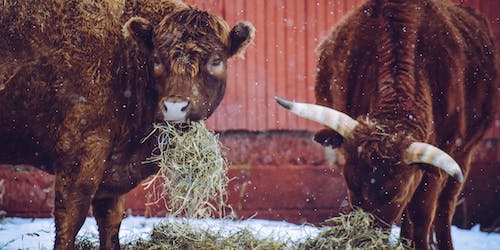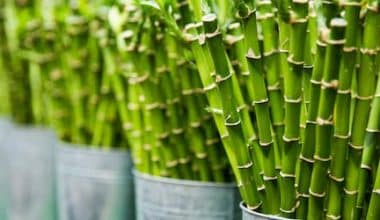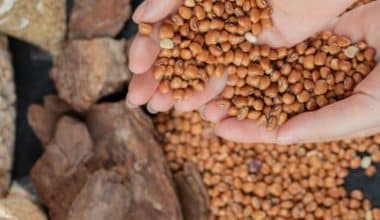How profitable is it to invest in the production of animal feed? It’s no secret that one of the best agribusinesses with the highest potential for profitability is the animal feed/livestock feed business. Instead, you should ask how to select the best option from the roughly 100 available business prospects in the animal feed industry. The problem is that capital is what really counts. To help you along, I’ll list the best animal feed company concepts according to capital. Also, I’ll demonstrate to you how to launch an animal feed company in Nigeria using some of the most prominent models working today. I will proceed from the one that requires the most capital to the one that requires the least. In 15 minutes, let’s plunge in and be done.
What is Animal Feed?
Animal feed is food that has been specially prepared and fed to animals, including pigs, poultry, and cattle, in order to give them the nutrients they need for healthy growth and development.
What Is the Animal Feed Production Business in Nigeria About?
The process of making feed items that are specially designed to supply the nutrients needed for animal growth and development is known as animal feed production. This is mixing different materials, like grains, minerals, and vitamins, to provide an economical, nutritionally balanced feed that farmers may use to raise the productivity and well-being of their livestock.
The manufacture of animal feed is a vital part of Nigeria’s and Africa’s livestock industries since it supplies the nutrients required for animals to grow and develop healthily. The quality and quantity of animal products—such as meat, milk, and eggs—that are essential for the region’s food security and economic development can be enhanced with the use of properly prepared animal feed.
Benefits of The Animal Feed Production Business In Nigeria
The following are some advantages of operating this business:
- Enhances animal nutrition and health: The creation of animal feed gives cattle the vital nutrients they need to maintain their ideal levels of development, health, and productivity.
- Boosts productivity and profitability: Farmers can attain greater yields, more profitability, and enhanced efficiency through the manufacture of animal feed when it is formulated properly.
- Increases food security: By guaranteeing a steady supply of wholesome animal products, the manufacturing of animal feed helps to increase food security.
- Less dependency on imports: Farmers can lessen their reliance on pricey import feeds that are susceptible to price volatility and supply chain disruptions by manufacturing their own animal feed.
- Promotes rural development: The production of animal feed helps to sustain local economies by giving rural populations access to employment opportunities and revenue.
- Encourages sustainable agriculture: The manufacturing of animal feed can aid in lowering the environmental impact of livestock farming by streamlining feed formulas and utilizing locally sourced materials.
- Aids in disease control: Feed additives can be used to improve animal health and stop the transmission of disease, while proper nutrition can help lower an animal’s chance of contracting an illness.
- Enhances the quality of animal products: Meat, milk, and eggs can all have better nutritional profiles, tastes, and textures when fed high-quality feed.
- Gives local farmers a market: Producing animal feed can generate a demand for crops farmed nearby, lowering waste and boosting regional agriculture.
- Contributes to export prospects: The production of animal feed can open up opportunities for exports and economic growth in the industry due to the rising demand for premium animal products worldwide.
Health Benefits of Animal Feed
In order to guarantee that the animals in livestock and poultry farming receive the nutrients they need for optimum health and growth, animal feed production is essential. The body can benefit from animal feed in the following ways for health:
- Enhances animal growth and development: Essential nutrients included in animal feeds are critical to the health and well-being of animals. Proteins, carbs, minerals, and vitamins are some of these nutrients.
- Enhances the quality of animal products: The quality of the animal feed that animals eat directly affects the quality of the products that animals produce, including milk, eggs, and meat. The vital nutrients that animal meals supply raise the calibre of these goods.
- Enhances animal productivity and profitability: Animal feeds have the power to dramatically boost an animal’s production and profitability by giving them the proper nutrients. This implies that farmers can raise more livestock and profit more from it.
- Enhances animal well-being and lowers disease risk: Animal feeds include vital nutrients that are critical to the health of animals. A diet that is well-balanced can lower the chance of getting sick and help prevent diseases.
- Enhances animal immunity: Meals for animals has the potential to strengthen their defenses against illnesses and infections.
- Enhances reproductive performance: Animals with a balanced diet that contains animal feeds will reproduce more successfully, leading to improved breeding outcomes and a larger progeny yield.
- Lowers the frequency of metabolic illnesses: Acidosis and ketosis are two examples of the metabolic problems that can be less common in animals when fed a properly prepared diet.
Types Of Animal Feeds In Nigeria
Nigeria and other African countries produce a variety of animal feeds for a range of animal species. In Nigeria, some popular varieties of animal feed are as follows:
- Poultry feed: Feed intended for poultry birds, such as broilers, layers, and turkeys, is known as poultry feed.
- Ruminant feed: Goats, sheep, and cattle are examples of ruminant animals that are fed this type of feed.
- Pig-specific feed: This type of feed is called swine feed.
- Fish feed: This category includes feeds designed specifically for fish, such as catfish, tilapia, and other varieties.
- Pet food: This category includes meals designed specifically for domesticated animals like dogs and cats.
- Horse feed: These meals are specially made for horses.
- Rabbit feed: Feed intended specifically for rabbits is known as rabbit feed.
- Game bird feed: Feed intended for game birds, such as pheasants, guinea fowls, and quails, is known as game bird feed.
- Snail feed: Feed intended specifically for snails is called snail feed.
- Feed for cattle: These are meals made especially for cattle.
The nutritional value and composition of various animal feeds differ based on the needs of the individual animal.
How To Start The Animal Feed Production Business In Nigeria: Step-By-Step Guide
In Nigeria, there are various processes involved in launching a firm that produces animal feed, such as:
- Perform Market Research: Find out whether there is a need for animal feed in your community by conducting market research. This will assist you in identifying the competition, the target market, and the kind of feed to create.
- Create a Business Plan: Create a business plan that outlines your goals for the company, your marketing approach, your projected financial situation, and your operational schedule. This will function as a business roadmap.
- Register Your Company: Get the required licenses and permits and register your company with the relevant government bodies.
- Choose a Location: Choose a place for your animal feed manufacturing company that is convenient for clients and suppliers. There should be enough of room at the area for storage and production.
- Source Raw Materials: Look for premium raw materials including bone meal, fish meal, soybean, wheat bran, and maize. These are the primary components utilized in the manufacturing of animal feed.
- Get Equipment: Invest in or rent the gear your company needs to produce animal feed. Mixers, grinders, pelletizers, and packaging devices fall under this category.
- Mix the Ingredients: The next stage is to combine the ingredients in the proper ratio after obtaining the equipment and raw materials.
- Process the Mixture: After the ingredients are combined, they are processed to give them the correct size and texture.
- Dry the Feed: The feed is dried to lower its moisture level after processing.
- Pack the Feed: After being dried, the feed is bundled into various sizes for retail sales. To avoid contamination and spoilage, make sure the packaging material is of the highest caliber.
- Mix the Ingredients: The next stage is to combine the ingredients in the proper ratio after obtaining the equipment and raw materials.
- Process the Mixture: After the ingredients are combined, they are processed to give them the correct size and texture.
- Employ Skilled Personnel: Seek out competent personnel with prior expertise producing animal feed. They must be capable of running the machinery and making nutritious animal feed.
- Create a Distribution Network: To get your goods in front of clients, create a distribution network. Working with distributors, wholesalers, and retailers can all fall under this category.
- Put Quality Control Measures in Place: Put Quality Control Measures in Place to Make Sure Your Animal Feed Is Safe for Animals to Eat and Meets Industry Standards.
- Create Brand Awareness: Using marketing and advertising, create brand awareness. This can involve promoting your items on social media, building a website, and going to trade exhibitions.
Types Of Equipment Used To Produce & Package Animal Feed In Nigeria
Below is a list of tools used in Nigeria and throughout Africa for the manufacturing and packing of animal feed:
- Hammer mill: This device is used to reduce the size of raw materials into tiny particles, including wheat, soybeans, and corn.
- Mixer: To create a balanced feed, various basic ingredients and additives, like vitamins and minerals, are combined in a mixer.
- Pellet mill: This device compresses the combined components to create pellets.
- Cooler: During the process, the pellets made by the pellet mill are heated, and the cooler aids in bringing them down to a safe temperature to prevent spoiling.
- Crumbler: This device splits huge pellets into smaller pieces.
- Sifter: The purpose of the sifter is to rid the feed of dust and other particles.
- Packaging machine: Following production and processing, animal feed must be packed before being sent to clients.
- Weighing device: To guarantee precise measures and cut down on waste, this device weighs the feed.
- Conveyor: This machinery is used to move completed goods and raw materials between production steps.
- Storage facilities: Before animal feed is distributed, it must be kept in proper storage to guarantee that its quality is maintained.
In conclusion, Nigeria and Africa cannot produce or package high-quality animal feed without the equipment mentioned above.
How to be a Successful Livestock Feed Supplier/Distributor in Nigeria
Animal feed distribution is another business model in the livestock feed industry. And this is how one might succeed as a Nigerian distributor of livestock feed.
#1. Find out where you can purchase feed additives, supplements, and livestock feed nearby.
To the best of my knowledge, Nigeria’s top 7 agro-feed companies—Top, Aqua, Vital, Ranaan, Boar, Durante, and Hybrid—provide the best chicken feed available today. Being the top-selling brands, some, if not all, of them ought to be the target market for your product. By the way, the price of the goods and the cost of transportation should be high priorities while making that choice.
#2. Obtain a license to distribute feed.
The next step is to obtain a feed distributor license if the company has opted to distribute its animal products. To learn more about the regulations, get in touch with the manufacturer if you want to distribute hybrid feed or top-feed poultry feed.
#3. Invest in or rent an outlet
To start a business, you’ll need a space, such as a store or warehouse, therefore, you should get one. However you choose to use it, security and exposure should be your top concerns. Recall that a business’s location is crucial.
#4. Profit from the labour force
You can’t load feed bags by yourself; thus, depending on your budget, your venture will require multiple individuals to assist you. Instead of hiring someone and paying them a salary every month, you can work with freelancers that you pay as they go.
#5. The system of transportation
Should you not possess a van or truck for transportation, you will be spending a lot of money on car rentals and/or delivery services. That means you’ll need one, along with a group of delivery men and a driver at the back of the truck.
Is Animal Feed a Lucrative Business?
A lucrative industry, the commercial production of high-quality animal feed is driven by the population’s increasing demand for resources and the expansion of the animal husbandry industry.
What are the 3 Types of Animal Feed?
It is simple to divide feeds into three categories: mixed feeds, concentrates, and roughages. Hays, silages, pasture forages, and high-fiber byproduct feeds are examples of roughages.
Is Animal Feed Regulated by NAFDAC?
It is imperative to underscore that the NAFDAC Act, CAP N1 (LFN) 2004, other relevant legislation, and the supporting recommendations must all be followed in order for animal feed to be produced, imported, exported, advertised, sold, or distributed in Nigeria.
What are the Raw Materials for Animal Feed?
Vitamins, wheat, fruits, minerals, fodder, maize, barley, distiller’s grain, sorghum, and vegetables are examples of agricultural products.
In Conclusion
In conclusion, the manufacture of animal feed is a profitable and vital industry that offers entrepreneurs a fantastic chance to get into it in Nigeria and throughout Africa. The region has a high demand for animal feed, and this demand is only projected to rise as the number of livestock animals increases. The sector is a lucrative commercial venture because it has the ability to export to other nations.
- HOW TO START A FARM: Step-To-Step Guide to Farming Success
- A Guide To Getting Started In Commodity Trading
- 5 Ways To Engage Followers And Be At The Top Of User Feeds on TikTok
- WHAT IS A NON-PROFIT COMPANY: Everything You Need to Know
- WHAT DOES THE FEDERAL RESERVE DO?






